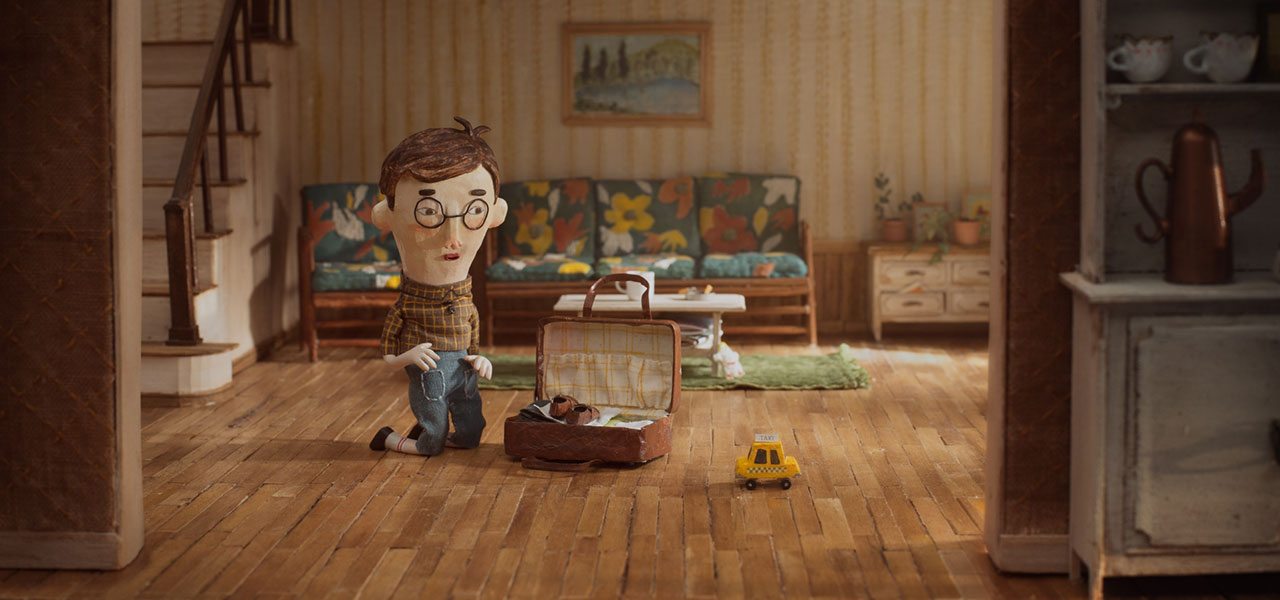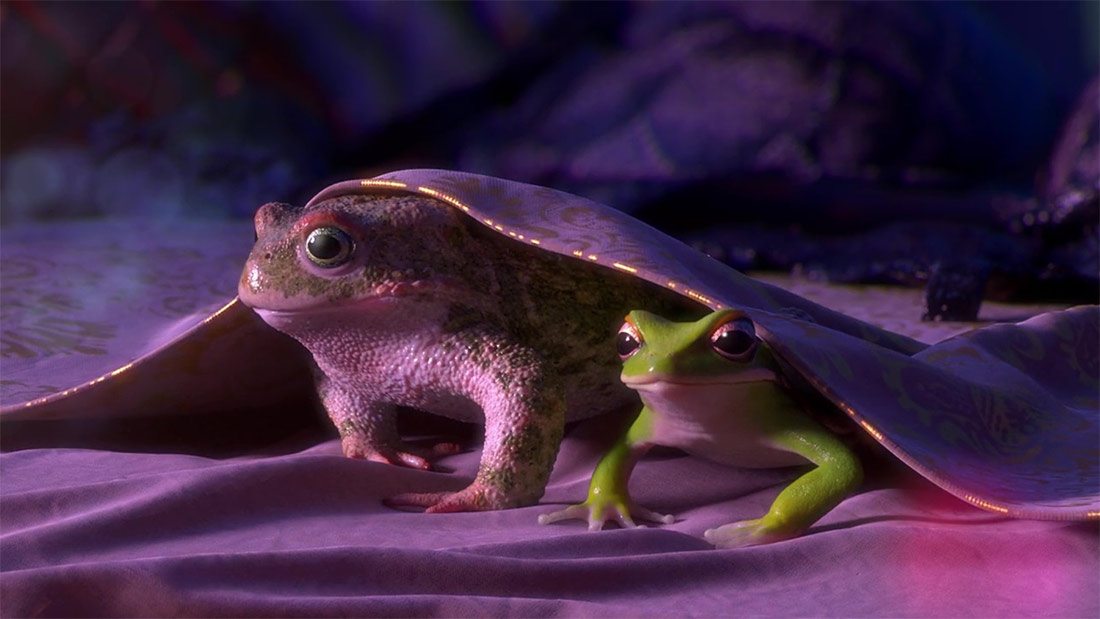

How French Company Miyu Distributed Oscar Nominees ‘Negative Space’ And ‘Garden Party’ In France
French media has been abuzz about the Oscar nominations since they were announced.
Most of the attention has been focused on the documentary Faces Places directed by the legendary Agnes Varda and contemporary artist JR, and Alexandre Desplat’s nomination for his score of The Shape of Water. Less attention has been paid to the fact that two of the five animated shorts are French productions: Garden Party and Negative Space. Needless to say, neither has anyone noticed that the films are both distributed by the same French company, Miyu.
Founded in 2009 by Emmanuel-Alain Raynal, Miyu is a production company specializing in animated short films, working with the likes of Ugo Bienvenu and Kevin Manach (Maman), and Michele and Uri Kranot (Nothing Happens). It is also developing animated features and series projects.
Based in Paris, Angoulême, and Valence, Miyu recently expanded its activities to distribution by forming a business partnership with Arles-based Sève Films, which was founded by Luce Grosjean in 2014. She is now in charge of Miyu’s distribution arm.

She handles the distribution of her own company’s productions of course, but also works with other indie producers she feels close to, like Ikki Films, led by Edwina Liard and Nidia Santiago, the producers of Negative Space.
Grosjean also has strong connections with animation schools because she was employed for many years by Reca, a network of top-tier French animation schools. That is how she had the idea to distribute graduation films from Gobelins, Ecole Estienne, Isart Digital, ArtFX, and Mopa, the school that produced Garden Party. She is expanding beyond France now too, and recently started distributing films from The Animation Workshop, a top Danish school.
When asked about animated short film distribution works in France, Grosjean is blunt: “There’s no real business model, no market for short movies in our country, like there is for feature films. The revenues are too little.”
The revenues may be insufficient, but they do exist. One of the incomes source is the old reliable cinema distribution. Movie distributors gather shorts into selections for young kids. Some companies even specialize in creating this type of line-up for theaters, which can be very successful, sometimes moreso than features.
Folimage and Films du Nord produce their own shorts for the cinema, but most programs are composed of graduation films or professional films around one theme. “It’s not easy to fit in,” says Grosjean of the challenge in compiling short film programs. “Sometimes I have a super cute story with bunnies and mice, but, then boom, the film gets nasty and dirty by the end!”
Shorts film for adults can also be shown in theaters, before a feature film. A special program, ‘L’Extra Court,’ was created in 1987 by the Agence du court-métrage, a non-profit organization that promotes short films.
They may also be broadcast – though unfortunately, very late at night – on several French tv channels, both public (France 2, France 3, and Arte) and private (Canal+ and Ciné+). Says Grosjean, “Court-circuit, the Arte show for shorts, also posts the films on their website where they can be seen (in France and Germany only) for one year. They do not hesitate to post a film on Facebook in order to promote it, like they did for Negative Space during the Oscar campaign, harvesting half a million views.” The broadcasters don’t pay much though, between $600 and $1,000 dollars per minute.

In fact, the primary goal of Miyu Distribution is to get selections in festivals for the films that they represent. “We don’t have an obligation of financial result, but the value of a short depends on selections and the reputation of the festival,” says Grosjean. “It’s during these festivals that the buyers come and see us. So, with the producer and director of each film, we build a festival tour that will achieve their objectives.”
In France, a special subsidy is given by the CNC (Cinema and Animated Image National Center, an agency of the French ministry of Culture) to help in the creation of short films. The amount of the aid, that helps around three dozen producers each year, varies from as little as $12,000 to as high as $225,000. The amount that each producer receives is calculated from a list of criteria, among them festival selections, sales to tv channels and to cinema distributors, and nominations and awards received.
But Grosjean doesn’t want to rely solely on that kind of government funding. “In France, short movies exist almost entirely thanks to grants, mainly public but also private. It’s a chance, but we tend to rely too much on that system. I want to promote films the way American short directors consider their films, by asking myself one question: ‘How will the promotional plan help the director make another film and maybe build a career?’ The young team which made Garden Party played ball and their festival tour helped their professional projects.”

If a real market does not exist yet for short films, a virtuous circle does produce its effects. A graduation film can be a stepping stone for a professional short, which can be a test for a feature film.
Grosjean is optimistic about her business with the rise of pay television, like OCS (owned by French telecom giant Orange) and video-on-demand services, like Benshi Studio, a wonderful high-level selection of films for young audiences. Also, some U.S. magazine websites, like The New Yorker, have started to license shorts as a way to add prestige to their brands (paying around $2,000 for a seven-year deal to screen films across their digital platforms).
Grosjean, for one, remains optimistic about the growing demand for animated shorts. “I am convinced that the short format will gain a broader audience with specialized plaftorms,” she says.

.png)